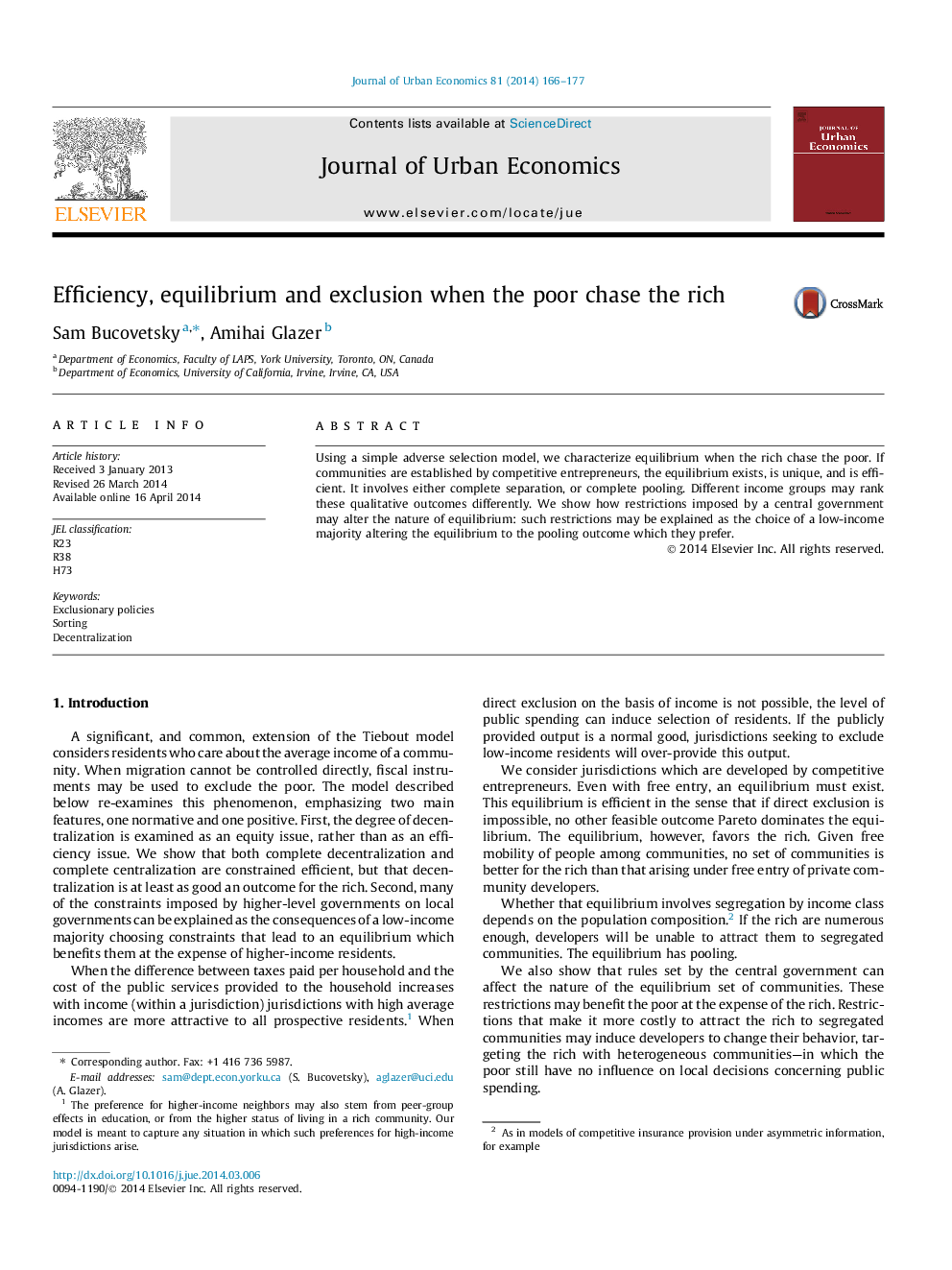| Article ID | Journal | Published Year | Pages | File Type |
|---|---|---|---|---|
| 971161 | Journal of Urban Economics | 2014 | 12 Pages |
Abstract
Using a simple adverse selection model, we characterize equilibrium when the rich chase the poor. If communities are established by competitive entrepreneurs, the equilibrium exists, is unique, and is efficient. It involves either complete separation, or complete pooling. Different income groups may rank these qualitative outcomes differently. We show how restrictions imposed by a central government may alter the nature of equilibrium: such restrictions may be explained as the choice of a low-income majority altering the equilibrium to the pooling outcome which they prefer.
Keywords
Related Topics
Social Sciences and Humanities
Economics, Econometrics and Finance
Economics and Econometrics
Authors
Sam Bucovetsky, Amihai Glazer,
